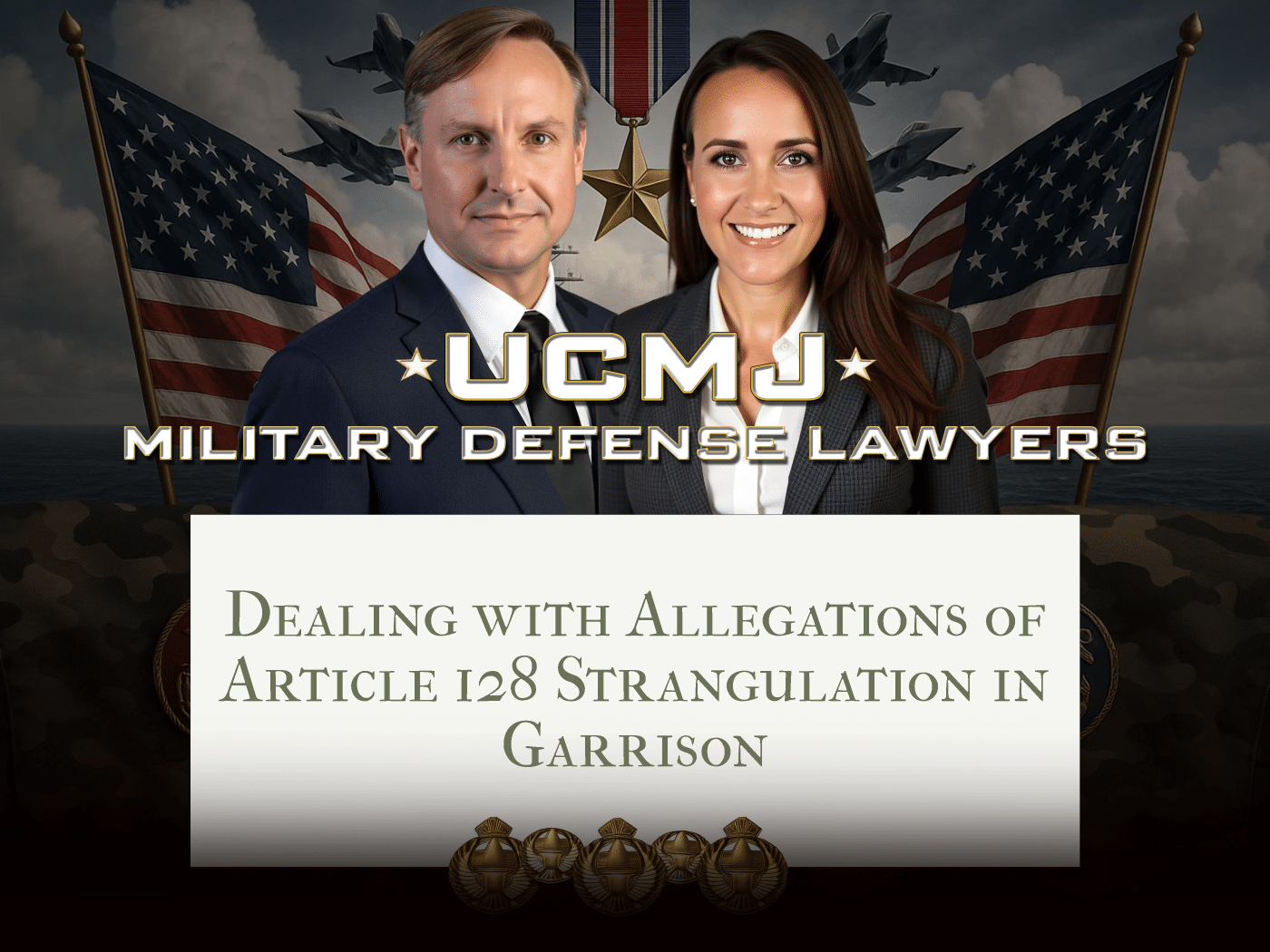When facing allegations of Garrison Article 128 Strangulation, the situation can feel overwhelming, frightening, and unfair. For those in the military, this charge can shake the very foundation of your career, reputation, and future. Whether you’re under investigation or have already been formally accused, it’s easy to feel like the deck is stacked against you. Garrison Article 128 Strangulation is a specific and serious form of assault that carries significant consequences, especially when alleged within the tight-knit and scrutinized environment of a military installation. Understanding the nature of this charge and how to respond to it is essential. Being accused does not equal guilt, and with the right information and legal guidance, you can begin to take meaningful steps toward defending your rights, career, and honor.
Breaking Down What Garrison Article 128 Strangulation Really Means
Article 128 refers to assault under the Uniform Code of Military Justice (UCMJ). Specifically, strangulation or suffocation has been designated as a more serious variation. When someone is accused of Garrison Article 128 Strangulation, it typically means they are alleged to have intentionally impeded another person’s breathing or blood circulation by applying pressure to the throat or neck. This can include using an object, such as a belt or piece of clothing, or using one’s hands.
For example, a heated argument between spouses stationed on base might escalate and end with one person claiming they were choked. In another case, an off-duty altercation among service members might be labeled as strangulation based on one individual’s account. The military treats these allegations with zero tolerance. Even minor injuries or unverified claims can spark a formal investigation. Due to the nature of military law, everything from your security clearance to your liberty could be at stake during this process.
Why Garrison Article 128 Strangulation Allegations Carry Weight
Allegations of strangulation under Article 128 are viewed seriously because of the physical harm and control they imply. The military justice system emphasizes accountability and discipline, meaning a single charge can damage not just short-term freedom but long-term prospects. Even before guilt is legally established, service members may experience repercussions like restricted duties or temporary confinement.
These real-world consequences can disable a career almost instantly. In addition, charges like this can fracture personal relationships, diminish community standing, and leave lasting psychological impacts. While many accusations may be legitimate, others can arise from misunderstandings, exaggerations, or emotionally charged situations that get out of hand.
- Scenario 1: A couple stationed on base argues during off-duty hours. One partner calls law enforcement and accuses the other of strangulation. Result: Command restricts the accused to their barracks and begins administrative separation.
- Scenario 2: Fellow service members get into an off-base altercation. One claims the other used strangulation tactics during the fight. Result: Charge forwarded to trial-level courts, putting the accused’s career and benefits on the line.
- Scenario 3: Former romantic partners dispute child custody. Strangulation claim is made post-breakup. Result: Family advocacy gets involved, triggering a report and suspension from duties pending investigation.
The Process of Handling Garrison Article 128 Strangulation Allegations
- Step 1: An allegation is made through law enforcement, command channels, or family advocacy services. This usually leads to a civilian or military investigator being assigned.
- Step 2: The service member may be read their rights under Article 31(b) and questioned. Often, this also leads to emergency protective orders, interviews, or pretrial confinement decisions.
- Step 3: If evidence is deemed sufficient, the accused may face summary court-martial, special court-martial, or general court-martial depending on severity. Each route demands legal defense preparation, and possible Article 32 hearings may occur before referral to trial.
Tips to Navigate Garrison Article 128 Strangulation Allegations Wisely
Frequently Asked Questions About These Military Allegations
How Gonzalez & Waddington Guides You Through Tough Times
Gonzalez & Waddington has extensive experience defending military clients in Article 128 strangulation cases across the globe. Their team understands that each case is unique, and they take the time to build a solid defense based on evidence, not assumptions. Having served clients across all branches, they are knowledgeable in trial litigation, administrative hearings, and military-specific scenarios. With decades of experience and national recognition, the firm brings clarity to complicated military justice processes. Clients benefit from reliable communication, dedicated representation, and a legal strategy tailored to your situation and career goals. When your future and freedom are on the line, having a firm with specialized military defense expertise offers confidence and peace of mind.



